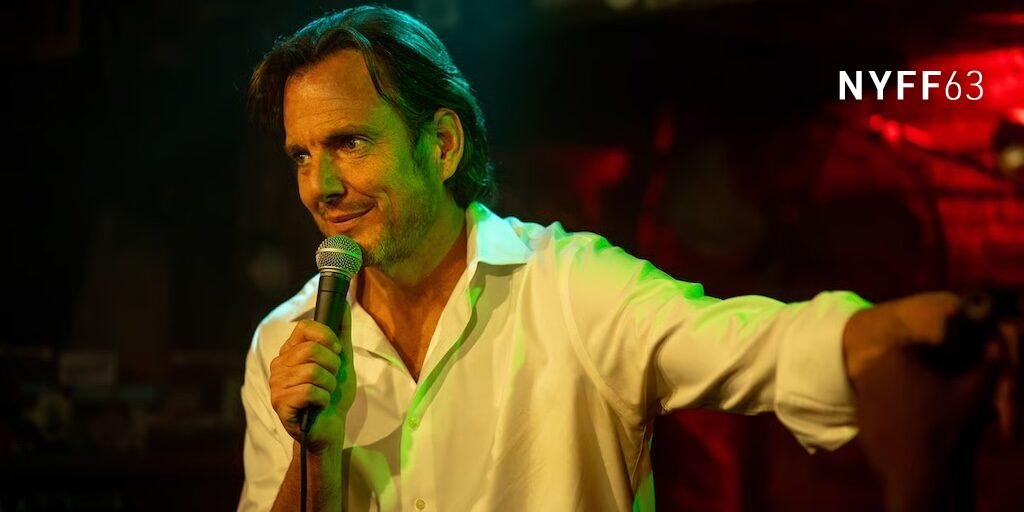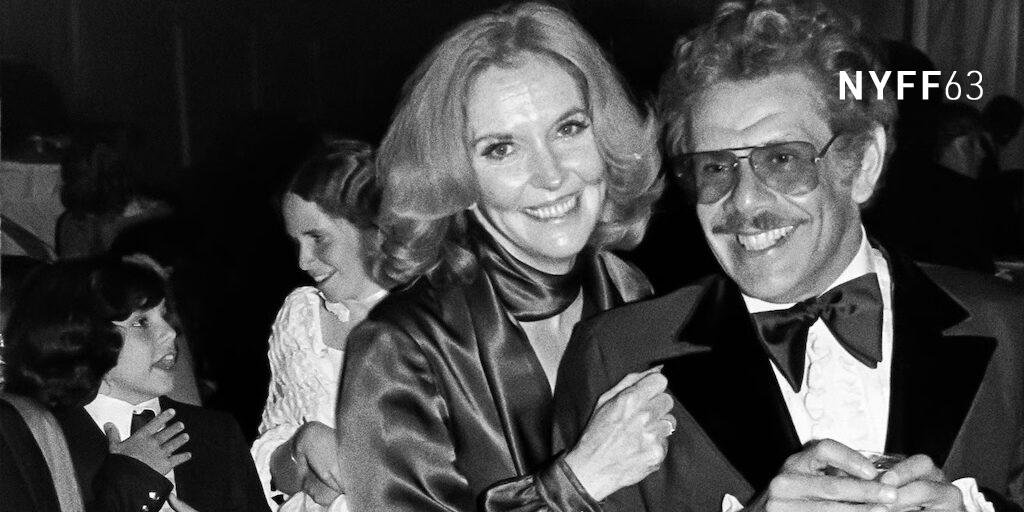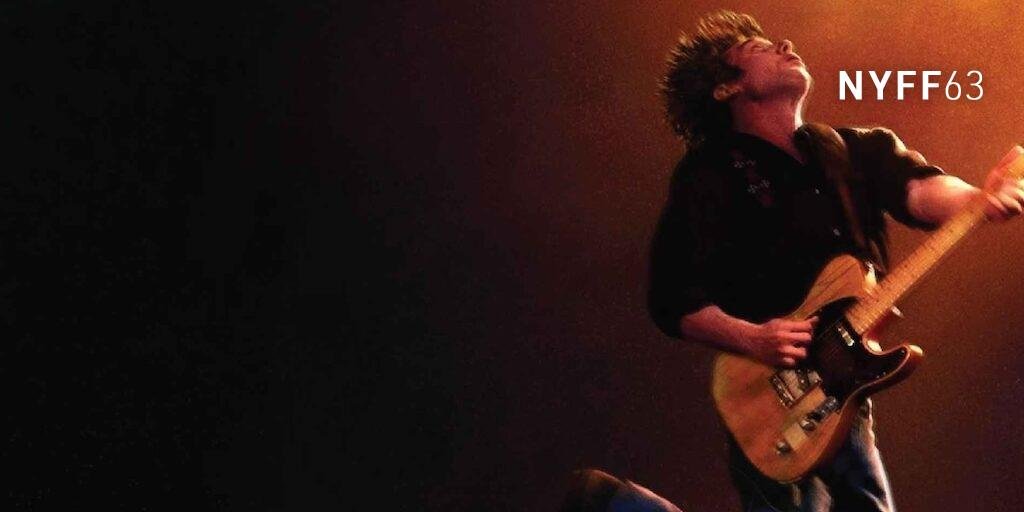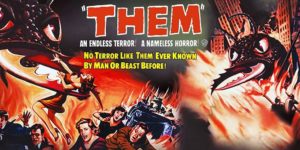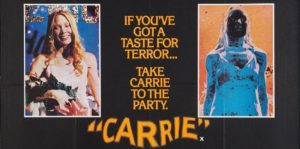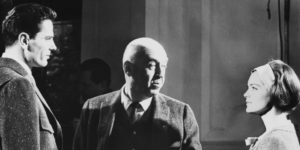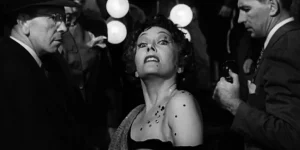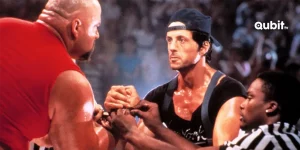SLUMPED BY NORTHWEST
In a spot-on article by Javier Porta Fouz about Mission: Impossible – Dead Reckoning, which around that time was titled as “Part One”, he exemplified a notion of auteurial distinction up until the appearance of Christopher McQuarrie in the director’s chair. He affirmed the franchise’s excellence up to that entry in particular and the apparition of a certain fatigue starting with the formerly known “Part One”.
No less than thirty years have come by since the De Palma entry, one where the conflicts were resolved purely and exclusively in a visual manner thanks to his genius. A film that included elements from the original TV series, such as the putting a crew together, the use of masks and the device describing the mission, along with its self-destruction. Also, Cruise, in the role of savior of the theatrical experience that has been bestowed upon him, respected the history of Classic Hollywood, giving place to a new Hero’s Journey; a new John Wayne, but with Cary Grant’s elegance. That is how he knew how to pay an homage, alongside John Woo, to the Hitchcock of Notorious and To Catch a Thief, both with Grant in the leading role, a detail that does not go lost on Cruise in this new Mission: Impossible – The Final Reckoning with the red biplane that is placed first ahead of Ethan (the name of John Wayne’s character in The Searchers), while he chases it until a yellow replacement comes along that almost runs him over, just like in North by Northwest.
Every recognition for the leading figure that Cruise is when it comes to the present of the film industry and his commitment for movies to continue to be seen in theaters remains intact and palpable in all his projects. This being said, what happens with Mission: Impossible – The Final Reckoning? It feels tired. The same fatigue Porta Fouz was referring to. There is fatigue, and this is not an issue with its running time. Over-explanations abound before and after the mission, which, in fact, previously generated anxiety when facing everything related to the complexity of the obstacles to overcome, such as the submarine in the previous film. This creates the sensation that the audience is being underestimated.
In every MI there is the notion of the presence or a higher evil. There is nothing new with the symbology of the key (a cross) and the savior; already seen in Dead Reckoning was Cruise’s position facing a window whose framings symbolized a cross on his back. There is not novelty either with Gabriel (Esai Morales), the villain-on-duty, whom is no longer introduced as such, associated with his temper or even the premeditated execution of his actions thanks to IA. There is also Grace (Hayley Atwell) and everything she represents: love, forgiveness and salvation. This character is left undefined as Hunt’s possible romantic interest or, in other words, annulled as such.
Above all, the film draws the particularity of the friendship relationship of the group/family. A group that, with every entry, has been diminishing as for the number of participants. Only Benji (Simon Pegg) and Luther (Ving Rhames) are left, and joining them are Paris (Pom Klementieff) and Degas (Greg Tarzan Davis), the bad girl that turns good and the agent that is not sure of what his role is in this situation. However, the script features ingenious pieces of dialogue, a reason that sometimes allows MI to dodge sleepiness. It is appreciated when Paris wants to heal a wound, she says that she is usually tasked with doing the opposite, killing.
Upon being asked in interviews about his physical prowess throughout the franchise, Cruise always answers by quoting Buster Keaton, when it comes to his stunts and even the way he produces his movies. The star, used to the Hollywood of many decades ago, has learned something and today constitutes the main engine of these magnanimous projects that do not look like others, such as the simpleton sagas of The Avengers, The Fast and the Furious, et al. His irruption in what will be remembered as the best set piece in this film (the one featuring the biplane) stands as an example of his commitment to the completion of a take, an objective functional to the story and, we can even guarantee, a personal challenge. As for McQuarrie, perhaps is where the fatigue we are described is felt the most. A director that, given his choices, would seem to understand Hitchcock for a few moments, but because he has the weight of De Palma on his back.
![]()
Director: Christopher McQuarrie. Screenwriters: Christopher McQuarrie, Erik Jendressen. Cast: Tom Cruise, Hayley Atwell, Pom Klementieff, Nick Offerman, Shea Whigham, Simon Pegg, Angela Bassett, Ving Rhames, Janet McTeer, Esai Morales. Producers: Tom Cruise, Christopher McQuarrie. Runtime: 169 minutes.



